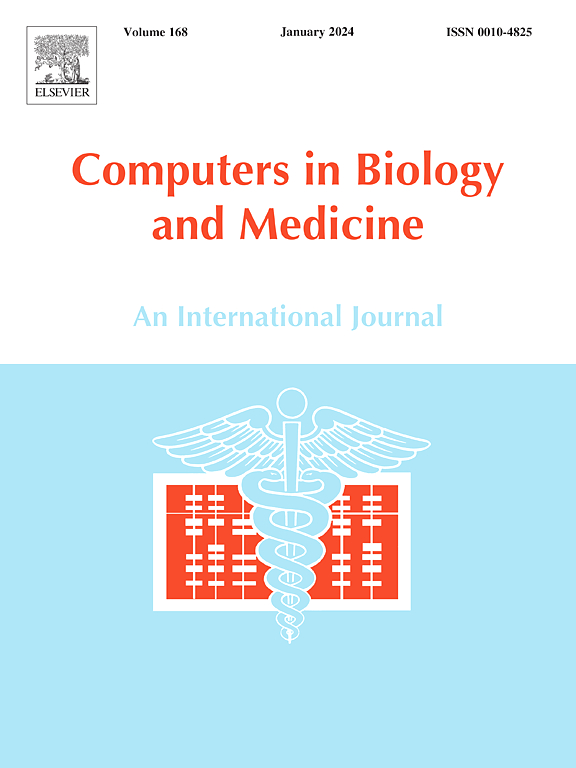Unraveling new avenues in pancreatic cancer treatment: A comprehensive exploration of drug repurposing using transcriptomic data
IF 7
2区 医学
Q1 BIOLOGY
引用次数: 0
Abstract
Pancreatic cancer, a malignancy notorious for its late-stage diagnosis and low patient survival rates, remains a formidable global health challenge. The currently available FDA-approved treatments for pancreatic cancer, notably chemotherapeutic agents, exhibit suboptimal efficacy, often accompanied by concerns regarding toxicity. Given the intricate nature of pancreatic cancer pathogenesis and the time-intensive nature of in silico drug discovery approaches, drug repurposing emerges as a compelling strategy to expedite the development of novel therapeutic interventions. In our study, we harnessed transcriptomic data from an exhaustive exploration of four diverse databases, ensuring a rigorous and unbiased analysis of differentially expressed genes, with a particular focus on upregulated genes associated with pancreatic cancer. Leveraging these pancreatic cancer-associated host protein targets, we employed a battery of cutting-edge bioinformatics tools, including Cytoscape STRING, GeneMANIA, Connectivity Map, and NetworkAnalyst, to identify potential small molecule drug candidates and elucidate their interactions. Subsequently, we conducted meticulous docking and redocking simulations for the selected drug-protein target pairs. This rigorous computational approach culminated in the identification of two promising broad-spectrum drug candidates against four pivotal host genes implicated in pancreatic cancer. Our findings strongly advocate for further investigation and preclinical validation of these candidates. Specifically, we propose prioritizing Dasatinib for evaluation against MMP3, MMP9, and EGFR due to their remarkable binding affinities, as well as Pioglitazone against MMP3, MMP2 and MMP9. These discoveries hold great promise in advancing the therapeutic landscape for pancreatic cancer, offering new avenues for improving patient outcomes.

揭示胰腺癌治疗的新途径:利用转录组学数据对药物再利用进行全面探索。
胰腺癌是一种以诊断晚期和患者生存率低而臭名昭著的恶性肿瘤,仍然是一个巨大的全球卫生挑战。目前fda批准的胰腺癌治疗方法,特别是化疗药物,疗效不佳,经常伴有毒性问题。鉴于胰腺癌发病机制的复杂性和计算机药物发现方法的耗时性,药物再利用成为加速新型治疗干预措施发展的一种引人注目的策略。在我们的研究中,我们利用来自四个不同数据库的详尽探索的转录组学数据,确保对差异表达基因进行严格和公正的分析,特别关注与胰腺癌相关的上调基因。利用这些胰腺癌相关宿主蛋白靶点,我们采用了一系列尖端的生物信息学工具,包括Cytoscape STRING、GeneMANIA、Connectivity Map和NetworkAnalyst,来识别潜在的小分子候选药物并阐明它们的相互作用。随后,我们对选定的药物-蛋白靶对进行了细致的对接和再对接模拟。这种严格的计算方法最终确定了两种有希望的广谱候选药物,用于对抗涉及胰腺癌的四个关键宿主基因。我们的研究结果强烈建议对这些候选药物进行进一步的研究和临床前验证。具体来说,我们建议优先考虑达沙替尼对MMP3、MMP9和EGFR的作用,因为它们具有显著的结合亲和力,而吡格列酮对MMP3、MMP2和MMP9的作用。这些发现对推进胰腺癌的治疗前景有着巨大的希望,为改善患者的预后提供了新的途径。
本文章由计算机程序翻译,如有差异,请以英文原文为准。
求助全文
约1分钟内获得全文
求助全文
来源期刊

Computers in biology and medicine
工程技术-工程:生物医学
CiteScore
11.70
自引率
10.40%
发文量
1086
审稿时长
74 days
期刊介绍:
Computers in Biology and Medicine is an international forum for sharing groundbreaking advancements in the use of computers in bioscience and medicine. This journal serves as a medium for communicating essential research, instruction, ideas, and information regarding the rapidly evolving field of computer applications in these domains. By encouraging the exchange of knowledge, we aim to facilitate progress and innovation in the utilization of computers in biology and medicine.
 求助内容:
求助内容: 应助结果提醒方式:
应助结果提醒方式:


